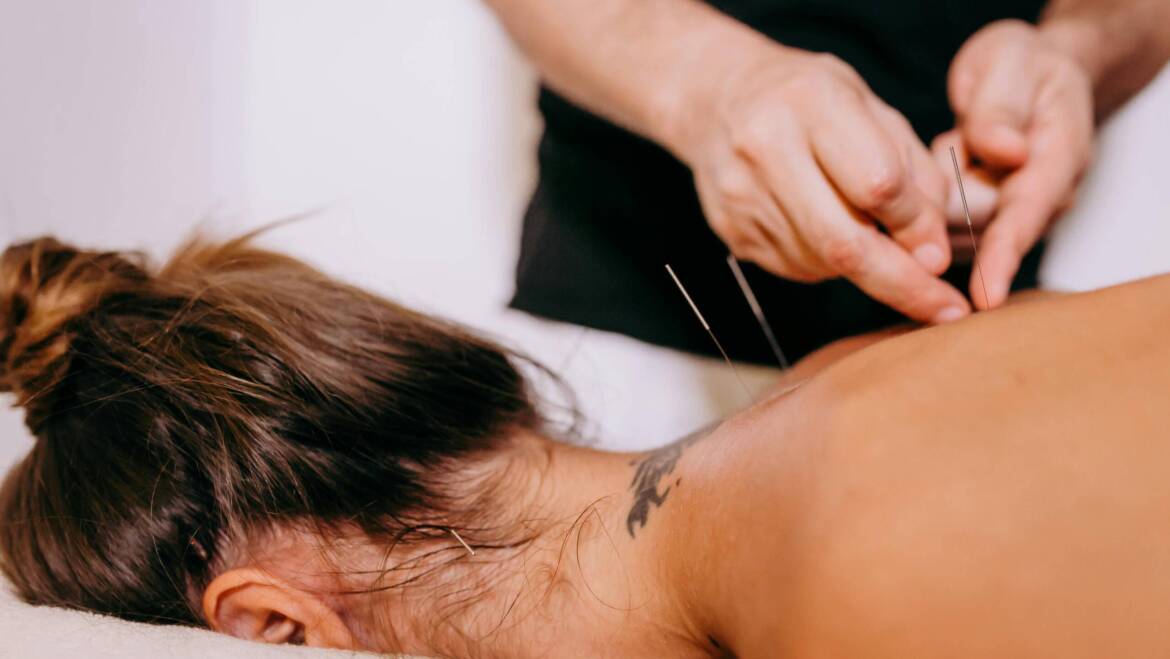Acupuncture for Better Sleep and Relaxation During Stressful Periods
In today’s world, where daily life often feels like a juggling act, restful sleep and relaxation can seem elusive, especially during heightened stress. Many find themselves reaching for solutions to unwind and get a good night’s sleep but struggle to find one that truly works. An age-old practice, acupuncture, has increasingly gained attention for its natural ability to promote relaxation and restful sleep, even amid the pressures of modern life. Through strategic points on the body, acupuncture encourages balance, calming the nervous system, and improving overall wellness. In this article, we’ll explore acupuncture for better sleep and relaxation and how it can be a transformative addition to your self-care routine, helping to ease both mind and body.
The Science of Stress and Sleeplessness
When stressed, our bodies release cortisol, the primary stress hormone that can disrupt our ability to fall and stay asleep. A constant state of stress leads to higher cortisol levels, which can, in turn, lead to a cycle of sleeplessness, fatigue, and more stress. Over time, this can result in chronic sleep issues, impacting mood, concentration, immune function, and overall well-being.
That is where acupuncture comes in. Traditional Chinese Medicine (TCM) explains that when the body is out of balance, our “qi,” or life energy, gets blocked or disrupted. Acupuncture helps by removing these blockages, allowing the qi to flow freely. Modern research also shows that acupuncture influences the nervous system by encouraging the release of endorphins and improving blood circulation. In short, acupuncture creates an environment for the body to heal, providing benefits that extend to both the mind and body.
Acupuncture for Better Sleep and Relaxation
People who turn to acupuncture for better sleep and relaxation report improvements in falling asleep faster and staying asleep longer. How does acupuncture influence sleep? Let’s explore some key benefits:
- Balances Hormones Linked to Sleep: Acupuncture may regulate melatonin production, the hormone essential for sleep-wake cycles. Balanced melatonin levels help you fall asleep more easily and enjoy deeper, uninterrupted rest.
- Reduces Hyperarousal: People with insomnia often experience hyperarousal, feeling “wired but tired.” Acupuncture soothes an overactive mind by addressing imbalances in the nervous system, making it easier for the mind and body to unwind.
- Improves Blood Flow: By enhancing blood circulation, acupuncture delivers more oxygen and nutrients to your organs, including the brain. Improved blood flow can calm the mind, helping reduce anxious thoughts that awake people at night.
- Enhances Natural Pain Relief: Many people struggle with sleep due to chronic pain or discomfort. Acupuncture naturally stimulates the body’s pain-relieving mechanisms, easing discomfort and supporting more restful, pain-free sleep.
Each acupuncture point is chosen based on your unique needs, targeting both the symptoms (such as insomnia or anxiety) and underlying causes (such as hormonal imbalance or physical tension) to provide a truly individualized treatment.
What to Expect During an Acupuncture Session
If you’re new to acupuncture, needles might sound intimidating, but acupuncture needles are extremely thin—nearly hair-like. A trained acupuncturist inserts these needles gently, with most people feeling only minimal sensations. In truth, many find the experience deeply relaxing.
Here’s a breakdown of a typical acupuncture session. At the start, the acupuncturist will ask questions about your health history, sleep habits, stress levels, and overall lifestyle. That helps them understand your needs and determine the best treatment plan. After that, the acupuncturist inserts needles at specific points, often located along energy pathways, or meridians, that correspond to different body functions and organs. Once the needles are in, you’ll be left to relax. Many people report feeling a warm, tingling as their body relaxes. This phase can last 20-30 minutes, after which the needles can be removed. Following a session, people often feel a wave of calm and may even feel sleepy, which is the body’s way of processing the treatment.
Why Acupuncture is a Natural Choice for Stress Relief
Chronic stress can take a toll on both physical and mental health, often leading to difficulties with sleep and relaxation. In many cases, untreated stress can escalate into more severe issues, as stress leads to addictive behaviors. Individuals may turn to substances like alcohol or drugs as a way to cope, creating a cycle that is hard to break. In addition, this reliance on substances not only exacerbates stress but also contributes to feelings of guilt and shame, making it even more challenging to seek help.
Acupuncture offers a natural and effective way to alleviate stress, promote relaxation, and help individuals manage their emotional well-being without relying on potentially harmful coping mechanisms. Its natural approach respects the body’s rhythms, aiming to restore balance rather than impose an artificial change. That makes it a great choice for people looking to improve their sleep without relying on medication.
Additional Benefits of Acupuncture for Stress Management:
- Boosts Immunity: Chronic stress weakens the immune system, making us susceptible to illness. Acupuncture strengthens immunity, helping you stay healthy even during stressful times.
- Supports Emotional Stability: Alongside physical benefits, acupuncture can encourage a more positive mindset, easing feelings of irritability and sadness. For those dealing with situational stressors, this can be an invaluable support.
- Enhances Mindfulness and Focus: Acupuncture can sharpen mental clarity and encourage a more mindful state. Easing mental clutter and anxiety enables us to face stressors with a calm, focused mind.
Incorporating Acupuncture into Your Wellness Routine
Acupuncture works best as part of a broader approach to wellness, especially during high-stress periods. Regular acupuncture sessions help maintain balance in the body, making it more resilient to stress. Aim for weekly or bi-weekly sessions, especially during peak stress times.
Moreover, acupuncture should be combined with other relaxation techniques. Practices like meditation, deep breathing, and yoga complement acupuncture’s effects, promoting relaxation between sessions and reinforcing its benefits on sleep.
Finally, listen to your body. Acupuncture teaches us to tune into our body’s signals. Use this to adopt other stress-relief habits, like taking short breaks during work, prioritizing sleep, and staying hydrated.
Final Thoughts
The demands of modern life can make it difficult to find time for self-care, but without it, stress and sleep troubles can take a toll on our health and happiness. Acupuncture offers a natural, effective way to calm the mind, restore balance, and improve sleep. Its benefits reach beyond relaxation, helping you tackle each day feeling more centered and resilient. So, if you’re feeling overwhelmed, struggling to sleep, or just looking to add more peace to your routine, consider giving acupuncture for better sleep and relaxation a try. With its long-standing history and holistic approach, acupuncture may be the key to finding the relaxation and restful nights you’ve been searching for.



